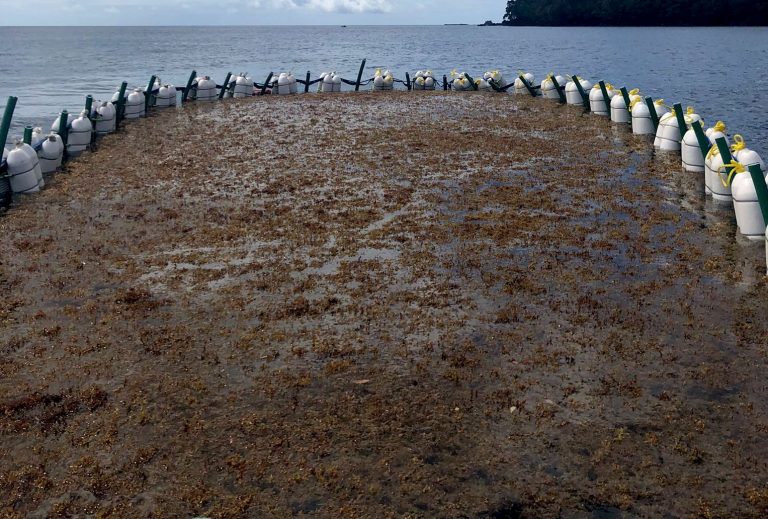John Auckland, the Co-Founder and CEO of the UK-based start-up, Seafields a blue carbon project which aims to remove 1Gt of carbon each year when fully operational has responded to the inter-governmental Panel on Climate Change (IPCC) report by scientists, released on the 20th March. The report stressed that there are multiple, feasible and effective options to reduce greenhouse gas emissions and adapt to human-caused climate change, and they are available now.
“We absolutely agree with the recent IPCC Report, particularly in relation to enabling sustainable development,” Mr Auckland said. “There is an abundance of money across the globe and Governments and Institutions need to channel it in a better manner so that the right people and climate action projects receive it. There are many solutions out there and with investment not caught up in loopholes there could be successful reduction in greenhouse gas emissions in months rather than years – when it is too late. Climate change is not a future threat, but a present reality. We are all facing the reality of the climate crisis – from heatwaves to flash floods, rising sea levels to loss of biodiversity.
“Over the next two years at Seafields, we will have successfully built and deployed our first ‘catch and grow’ farm. This will stop the seaweed in the Great Atlantic Sargassum belt from beaching whilst we then move it to a neighbouring anchored farm to give us time to process it. We will also provide Sargassum year-round to a variety of industries, to produce products that work as substitutes for fossil fuels – such as biofertilisers, bioplastics and biofuels. This will contribute to carbon dioxide emission reductions globally. And finally, part of our harvest will also be transformed into bioethanol bionaphtha and other fossil fuel alternative carbon-storing products.”
In 2018, IPCC highlighted the unprecedented scale of the challenge required to keep warming to 1.5°C. Five years later, that challenge has become even greater due to a continued increase in greenhouse gas emission. The pace and scale of what has been done so far, and current plans, are insufficient to tackle climate change.
More than a century of burning fossil fuels as well as unequal and unsustainable energy and land use has led to global warming of 1.1°C above pre-industrial levels. This has resulted in more frequent and more intense extreme weather events that have caused increasingly dangerous impacts on nature and people in every region of the world.
There is sufficient global capital to rapidly reduce greenhouse gas emissions if existing barriers are reduced. Increasing finance to climate investments is important to achieve global climate goals.
Governments, through public funding and clear signals to investors, are key in reducing these barriers. Investors, central banks and financial regulators can also play their part. There are tried and tested policy measures that can work to achieve deep emissions reductions and climate resilience if they are scaled up and applied more widely. Political commitment, coordinated policies, international cooperation, ecosystem stewardship and inclusive governance are all important for effective and equitable climate action.
If technology, know-how and suitable policy measures are shared, and adequate finance is made available now, every community can reduce or avoid carbon-intensive consumption. At the same time, with significant investment in adaptation, we can avert rising risks, especially for vulnerable groups and regions.
Climate, ecosystems and society are interconnected. Effective and equitable conservation of approximately 30-50% of the Earth’s land, freshwater and ocean will help ensure a healthy planet Urban areas offer a global scale opportunity for ambitious climate action that contributes to sustainable development.
Changes in the food sector, electricity, transport, industry, buildings and land-use can reduce greenhouse gas emissions. At the same time, they can make it easier for people to lead low-carbon lifestyles, which will also improve health and wellbeing. A better understanding of the consequencesof overconsumption can help people make more informed choices.



